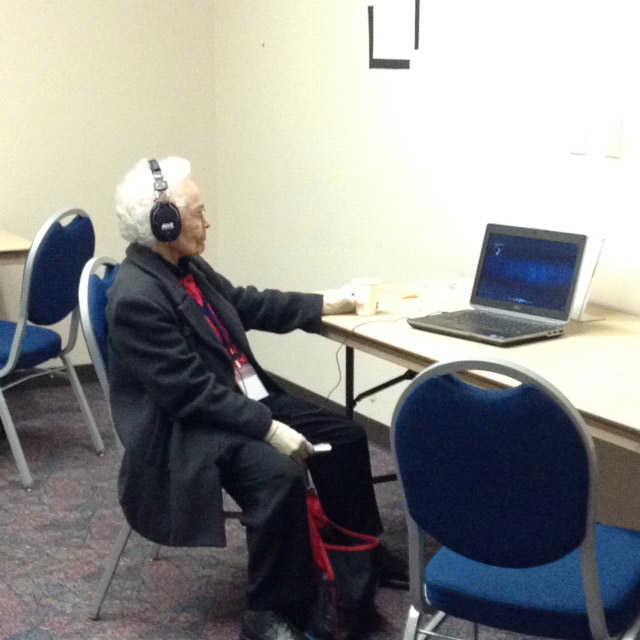As part of last week’s Tlingit Clan Conference at Centennial Hall, the Juneau Public Library set up a listening room where conference attendees could hear recordings of interviews conducted as part of the library’s ongoing StoryCorps project, expected to run through March. The oral history project focuses on Alaska Native educational experiences. The following is a partial transcript of an interview between Harriet Brouilette and her son, Ted Hart, recently conducted in Haines. In the interview Brouilette, tribal administrator for the Chilkoot Indian Association, talks about her Kake-born mother’s traumatic experiences at boarding school, and how her mother’s experiences affected her own life. It was recorded through the Juneau Public Library in collaboration with the Haines Public Library. For more information on the project, email Beth Weigel, Program Coordinator at the Juneau Public Libraries, at Beth.Weigel@juneau.org.
Harriet Brouilette: My mother had experiences of being locked in a closet (at Wrangell Institute Boarding School) for speaking her language. She was hit with a ruler and had her mouth washed out. But she was pretty stubborn. She was determined to learn and to hold on to Tlingit, which is the language that was spoken by her parents in their home. She came from a fairly large family, and the interesting thing was not all of her siblings learned to speak Tlingit. It wasn’t as easy for them because they were in school and you had to be pretty determined to hold on to your language because the educational system was pretty determined to scrub it out of you …
As I was growing up, I heard mom and dad speaking to each other in Tlingit, I could understand some of the things that they said. But Mom didn’t want us to learn, and to this day I’m not sure why. She learned a lot of shame in her language and in her culture, and she told me at one time that when we were born she really hoped that we didn’t look Native. I didn’t understand what she was talking about. Why would you not want us to look Native, that’s what we are. And what that caused me to want is for my (own) kids to look Native. So when you were born I was very happy you were brown and had dark hair. And I made a point of telling her, ‘Look at my child, I want him to look like this, I want him to be brown, I want him to have dark hair, I want him to know who he is. I want him to know he’s a Raven Frog.’ If that’s the only thing I taught you, it was going to be to be proud of who you are.
One thing that I’ve learned is that human education doesn’t come from a system, it comes from having a family that supports you and a family that realizes there’s more to a child’s education than sending them to a school or an institution. The bricks and mortar of who you are come from your family and understanding your family history. People react differently according to their experiences. The best education you can get is to learn how to read people and how to understand them and to have empathy.
Ted Hart: I agree.
Harriet Brouilette: Would you like to add anything?
Ted Hart: I would just like to encourage people to do their own research in the Tlingit culture, because I think no matter who you are, it has a lot to offer about being human and the environment. People have been here a long, long time, and there’s a lot to learn, there’s just vast amounts of ancient knowledge. I get little glimpses here and there, and when you start looking into it the more it starts making sense. They really valued observing nature, and I think that’s really important in this day and age, with the way things are going with the climate. I just really encourage people to look at it — there’s a lot to learn no matter how much or how little, or who you are. Gunalchéesh.

